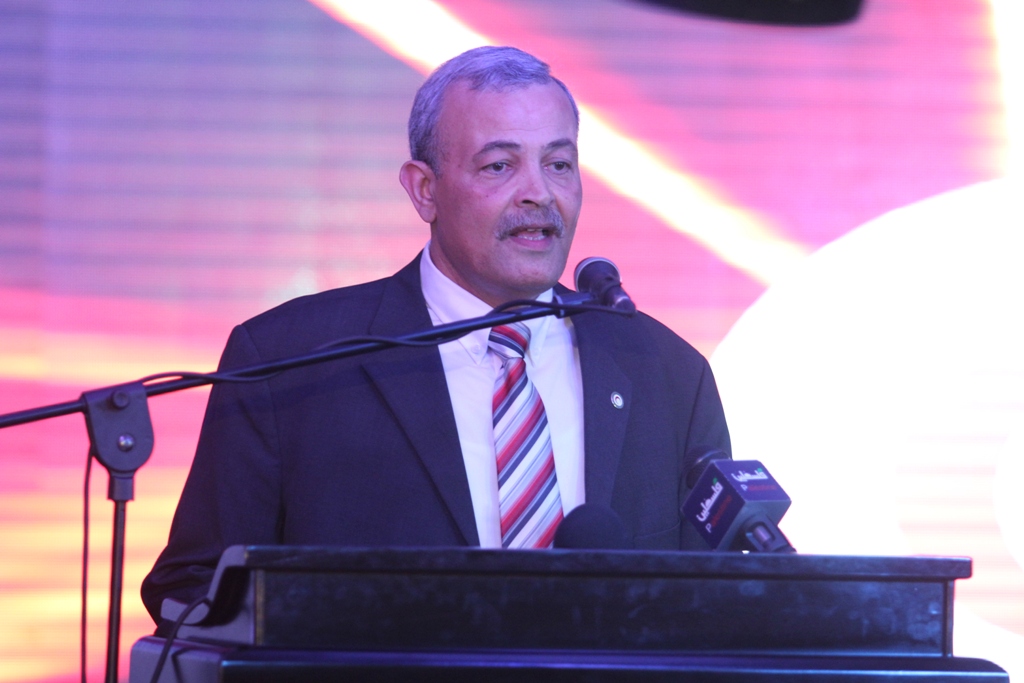
For PRCS’ President, its staff and volunteers, the eleventh PRCS’ General Assembly is more than just an ordinary festive event. It is, according to PRCS’ President Dr. Younis Al Khatib, a statutory meeting during which the previous four years are evaluated, and a strategy is prepared for the upcoming four years.
Following is an interview with Dr. Al Khatib, whose long-standing ties with PRCS span over a few decades. In this interview, he talks about past PRCS’ achievements and future aspirations:
Why is this General Assembly important?
The Society’s General Assembly is a statutory meeting which allows us to evaluate the previous four years and to prepare our direction for the upcoming four years. Our main goal is to serve Palestinians, alleviate their suffering and to help attain the ultimate Palestinian goal, i.e. to live in freedom and to achieve national independence.
Do you expect wide participation in this General Assembly?
Yes, the Assembly will be attended by many participants including representatives from PRCS’ branches, sub branches, institutes as well as health and social centers from Palestine and the Diaspora, including PRCS’ branches in Lebanon, Syria, Iraq, and Egypt.
Moreover, those participants and Assembly members who might not attend because they have not been granted the necessary entry permits (by the Israeli occupation authorities) will be able to follow meetings through the videoconferencing service. As such, PRCS will continue to unite Palestinians, wherever they may be.
What about international participation in the Assembly?
The Assembly will be attended by many international participants. PRCS is a member of the International Movement of the Red Cross and Red Crescent. As such, its General Assembly will be attended by representatives from the ICRC, IFRC and other partner organizations including WHO, UNICEF and civil society organizations with which we have been working for the past forty years.
The Strategy takes into account the political context and conditions witnessed by Palestinians under the Israeli occupation and in the Diaspora. It sets clear objectives, focuses on meeting the needs of Palestinians, including those of its own staff,
and on upgrading services with a view to preparing for potential crises. It helps raise
awareness both inside PRCS’ and within Palestinian communities about the importance of International Movement principles and IHL which considers Palestine as occupied territory. The Strategy is both firm and flexible. It enables us to respond to all changes in Palestine and the Arab world.
What do elections represent for PRCS’ in general and for its General Assembly in particular?
The General Assembly is a key statutory event which enables us to assess past work and to draft future directions. It is more important than elections, as discussions during the Assembly will allow us to tackle important issues. As for elections, I believe that many of the Society’s staff are quite capable of leading PRCS or of being part of its leadership. As the Assembly is an independent body, Executive Office or Administrative Council members might be elected by acclamation. In all cases these elections will bestow upon the new leaders serious responsibilities, not just honorary titles.
What are the main challenges facing PRCS?
Israeli occupation practices are the main obstacle hindering the Society’s work. The list of violations committed against PRCS is quite long. It includes obstructing its freedom of movement especially in areas located on the other side of the Wall of Separation. These practices, compounded by economic and social conditions caused by the Israeli occupation, cause great suffering to Palestinians.
This is reflected in high unemployment rates and in the tight blockade imposed on the Gaza Strip. Health and social activities are capital-intensive, especially in an occupied territory.
Israeli practices naturally increase the Society’s need for funding as they limit our ability to discharge our duties, forcing us to rely on external funding to cover the cost of services.
PRCS’ staff work under very difficult and complex conditions. How do you assess their role especially with regard to the Syrian crisis?
PRCS’ staff, regardless of where they work, respects the Society’s principles which are in line with the culture and goals of the Palestinian people. PRCS’ staff in Syria has discharged their duties according to available resources and capacities.
They have respected their humanitarian mission, but were nevertheless targeted. Six PRCS’ staff fell in the line of duty in this country alone.
In all, More than 185 PRCS’ staff has fallen in the line of duty since the Society was created in 1968.
I personally believe that the three PRCS’ hospitals in Syria need utmost support. Located in Al Yarmouk Camp, Palestine Hospital, for example, lacks access to the necessary medicine and medical supplies. The situation there is disastrous and is deteriorating constantly.
More than 80% of Palestinian refugees in Syria have been displaced. 60 000 of
them now live in Lebanon, while tens of thousands found refuge in other refugee camps both inside and outside Syria. Many live in make-shift shelters including in UNRWA schools. Their humanitarian conditions are appalling.